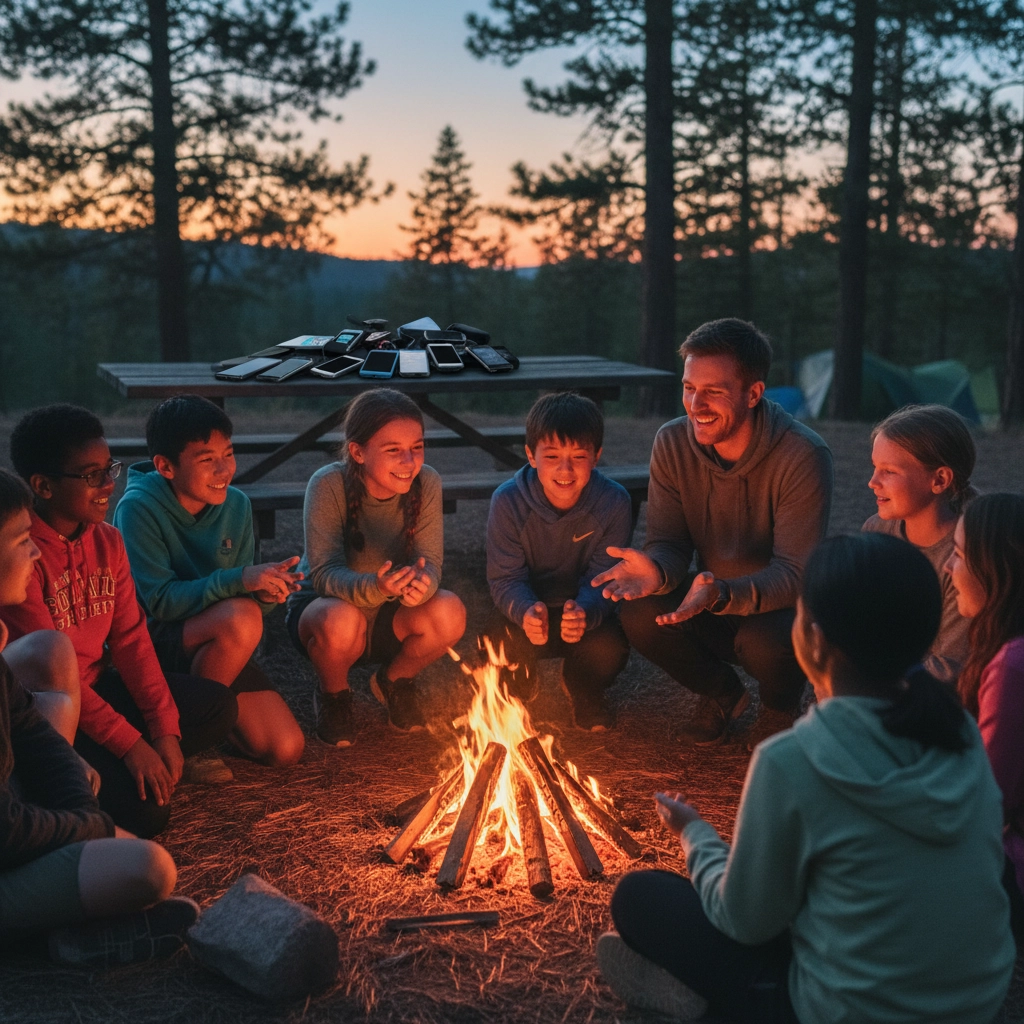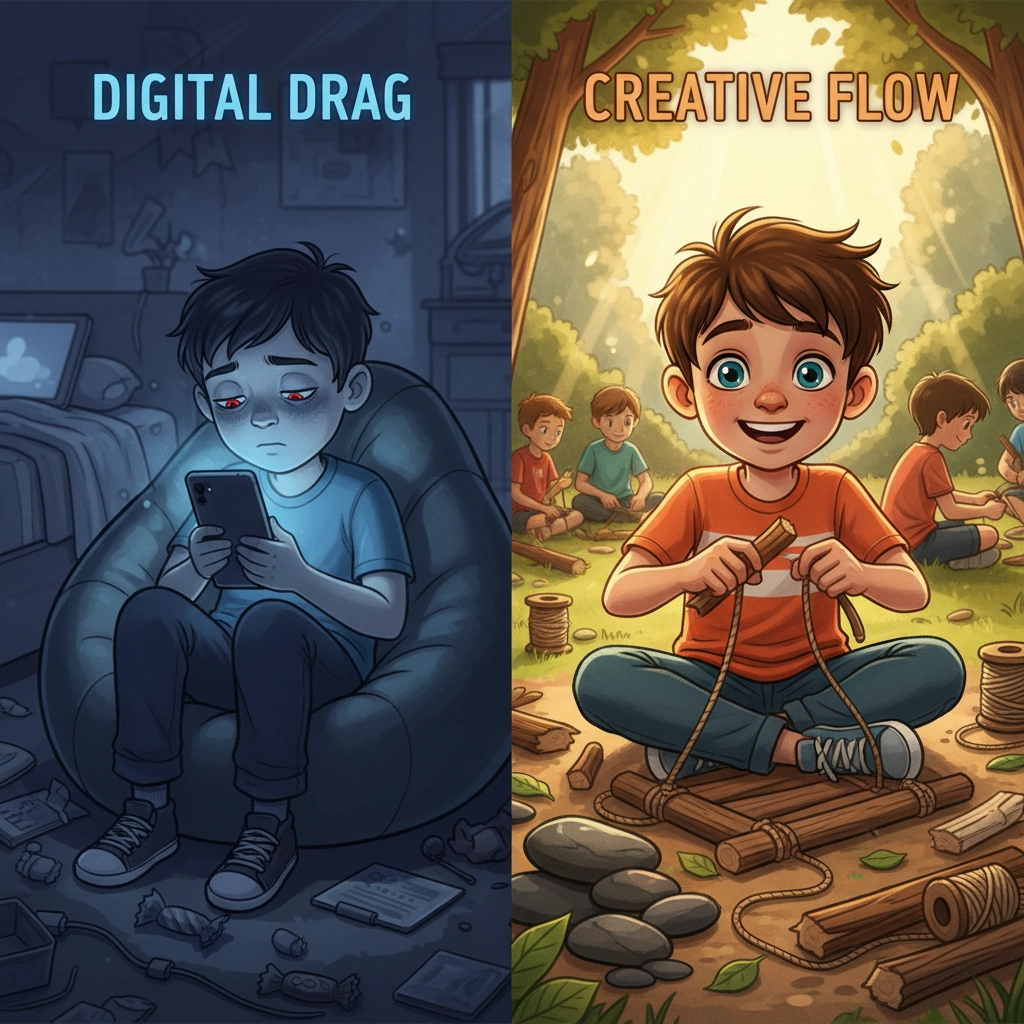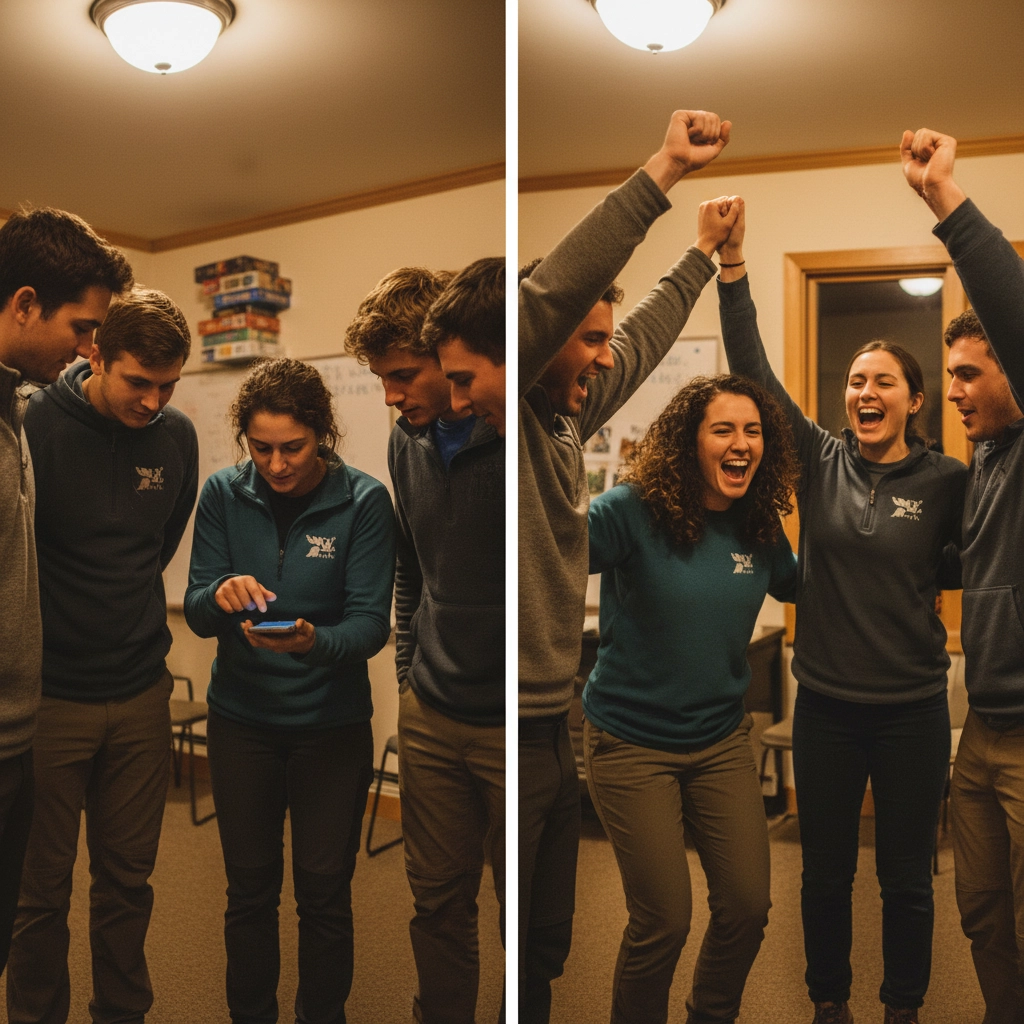The Summer Camp Daily Brief – October 16, 2025
- Matthew Kaufman

- Oct 16
- 5 min read
Good morning from camp world! Today's theme keeps circling back to one truth we feel in our bones: kids thrive when they're solving real problems with real people, not chasing feeds.
As we dive into fall and start planning for next summer, a few fresh reads underscore exactly why our cabins, fields, and rituals matter more than ever. Let's dig in.
The Feed Keeps Getting Harsher for Kids
Here's something that'll make your stomach turn: a new report highlighted how often teens stumble into graphic, distressing news on social platforms, even when they're not looking for it. Most don't know how to reset their recommendations either.
Think about that for a second. Kids open an app expecting dance videos or memes, and instead get hit with genuinely disturbing content that the algorithm decided to serve up. No warning, no context, no adult to help them process what they just saw.
This is exactly why we need to keep teaching "algorithm literacy" alongside swim strokes. When campers come to us next summer, they're not just learning archery or pottery, they're practicing how to be intentional with their attention. That's a life skill that goes way beyond the campfire circle.

Fresh Research Links Heavy Social Media Use with Weaker Cognition
Speaking of attention, here's another piece of the puzzle that won't surprise anyone who's worked with kids lately. Coverage of a UCSF analysis reports that more social media time correlated with lower scores in reading, memory, and vocabulary for kids 9–11.
We need to protect attention like it's sunscreen, because it basically is. Just like we wouldn't let kids spend hours in blazing sun without protection, we can't let developing brains marinate in endless scroll sessions without consequences.
At camp, when a kid has to figure out how to tie that knot, solve that team challenge, or work through a friendship conflict, their brain is getting the kind of workout that actually builds those reading and memory skills. Real problems with real stakes and real people to help figure it out.
Policy Winds Are Shifting on Screens
Here's something interesting from across the pond: Victoria, Australia announced primary-school limits to bring screens down and traditional learning up, with devices supplied by schools rather than personal devices.
It's worth watching as a test case for U.S. conversations. When entire education systems start pumping the brakes on screen time, you know the research is getting too loud to ignore.
Camp has always been ahead of this curve. We've been creating spaces where kids can think, create, and connect without the constant ping of notifications. Every summer, we get to run our own little experiment in what happens when young brains get space to breathe.

TikTok Touts Safeguards for Teens
On the platform side, TikTok's latest update reiterates defaults like DMs off under 16, a 60-minute daily limit, and bedtime notification pauses.
Whatever you think of the platform, these are settings worth knowing when you talk to families. Parents are looking for guidance on this stuff, and camp staff who can speak intelligently about digital wellness become incredibly valuable resources for families year-round.
The key is helping families understand that these settings are tools, not solutions. The real work happens in building kids' internal capacity to make good choices, the kind of work that happens naturally when you're navigating cabin dynamics or figuring out how to include everyone in a game.
Parent Attitudes: What They're Trying at Home
Want some context for your pre-summer family guides and camp orientation nights? New Pew data digs into how U.S. parents of kids 12 and under manage screens.
Parents are trying, but they're also struggling. They know screens are an issue, but they're often flying blind on practical strategies. This is where camp professionals can really shine, not by judging families, but by sharing what works in our settings.
When you can tell a parent, "Here's what we noticed when kids had to solve problems without immediately turning to a device," you're giving them something concrete to build on at home.

Health Check: Fall Respiratory Season Snapshot
Quick practical update: CDC notes acute respiratory illness is low right now; flu/RSV remain low as of late September, and the outlook suggests a peak similar to last season.
Practical takeaway: confirm your winter vaccine communication plan with staff and families now. Better to have those conversations during the calm before any potential storm hits.
One Thing to Try Today
Here's something you can literally do in your next staff huddle: run a two-minute "Feed Detox" micro-lesson. Show how to reset recommendations in one popular app and have everyone practice on the spot. Then pivot to a quick, noisy team ritual, chant, call-and-response, claps.
It's a tiny dose of skills plus belonging, the combo that makes camp... camp.
Why does this work? Because you're not just teaching a tech skill in isolation. You're teaching it within the context of community and connection. The lesson becomes part of the shared experience rather than just information transfer.

The Bigger Picture
All of these stories point to the same truth: kids need spaces to develop their internal operating system before they can navigate the external digital world effectively.
Camp isn't anti-tech, it's pro-human development. When campers leave us with stronger problem-solving skills, better emotional regulation, and deeper friendships, they're actually better equipped to use technology intentionally rather than being used by it.
The research keeps confirming what we see every summer: brains need challenges, bodies need movement, and hearts need connection. The magic happens when kids get all three in the same place.
As you're planning programming for next summer, remember that every activity is also a cognitive workout. That treasure hunt isn't just fun, it's building the kind of sustained attention that social media erodes. Those conflict resolution sessions aren't just cabin management, they're teaching skills that help kids navigate online drama more effectively.
Related perspective piece on screen overuse and youth mental health if you want to dive deeper into the research.
What's Next?
The conversation around kids and screens is shifting fast. As camp professionals, we're uniquely positioned to be part of the solution, not by avoiding technology entirely, but by creating experiences that build the skills kids need to thrive in a digital world.
Keep building those real-world problem-solving opportunities. Keep creating spaces for face-to-face connection. Keep showing families what's possible when kids get the chance to develop their full capacity as human beings.
The research is on our side. The need is clear. Now let's get to work.
Ready to dive deeper into creating tech-balanced programming? Follow @mattlovescamp on Instagram for daily insights, and join our community of camp professionals at www.ilove.camp.



Comments